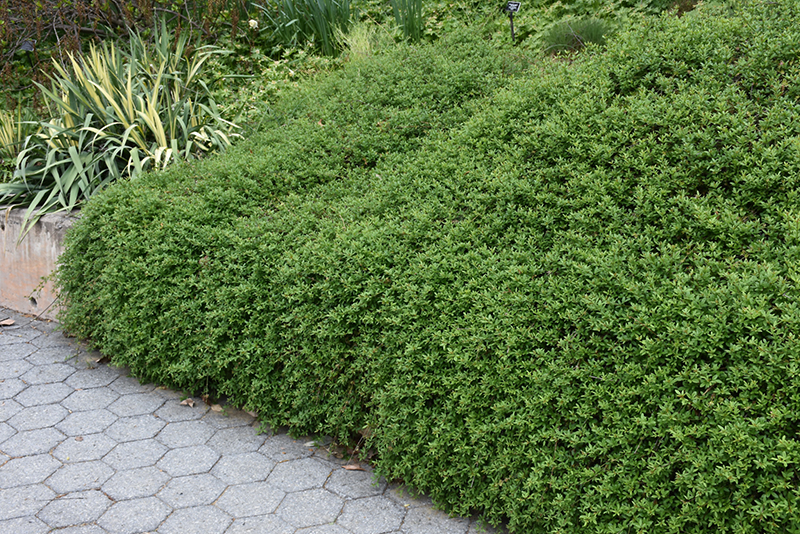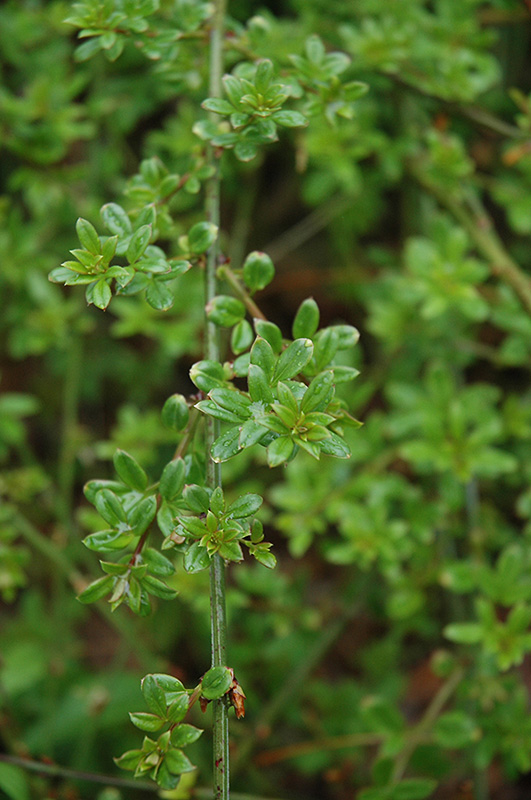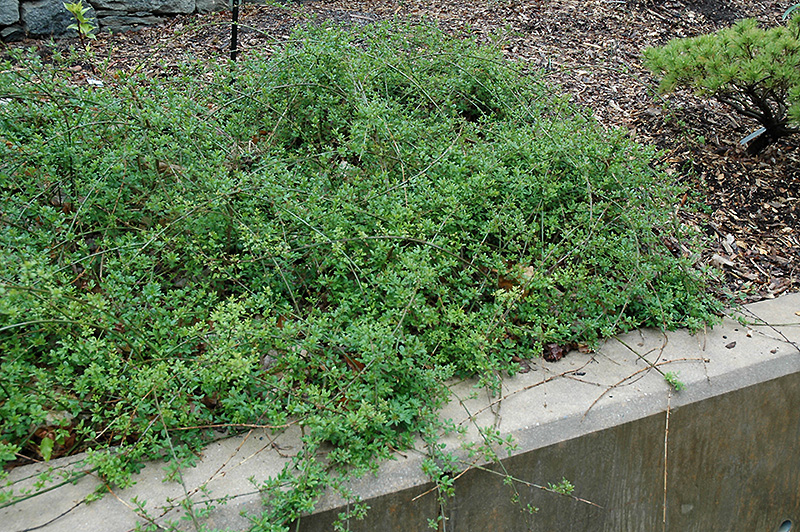Height: 4 feet
Spread: 10 feet
Sunlight:
![]()
Hardiness Zone: (annual)
Other Names: Jasminum sieboldianum, Weeping Jasmine
Description:
Weeping habit perfect for walls, trellises and pergolas; a low maintenance shrub but proper fertilizing and pruning maximize blooming; incredible display of small yellow scentless flowers in winter before leafing out
Ornamental Features
Winter Jasmine is covered in stunning yellow star-shaped flowers along the branches from late winter to early spring, which emerge from distinctive burgundy flower buds before the leaves. The flowers are excellent for cutting. Its small oval leaves remain emerald green in colour throughout the season.
Landscape Attributes
Winter Jasmine is a dense multi-stemmed annual with a mounded form. Its relatively fine texture sets it apart from other garden plants with less refined foliage.
This is a relatively low maintenance plant, and should only be pruned after flowering to avoid removing any of the current season's flowers. It has no significant negative characteristics.
Winter Jasmine is recommended for the following landscape applications;
- Mass Planting
- Hedges/Screening
- General Garden Use
Planting & Growing
Winter Jasmine will grow to be about 4 feet tall at maturity, with a spread of 10 feet. Its foliage tends to remain dense right to the ground, not requiring facer plants in front. Although it's not a true annual, this plant can be expected to behave as an annual in our climate if left outdoors over the winter, usually needing replacement the following year. As such, gardeners should take into consideration that it will perform differently than it would in its native habitat.
This plant should only be grown in full sunlight. It does best in average to evenly moist conditions, but will not tolerate standing water. It is not particular as to soil type or pH. It is somewhat tolerant of urban pollution. Consider applying a thick mulch around the root zone over the growing season to conserve soil moisture. This species is not originally from North America.



